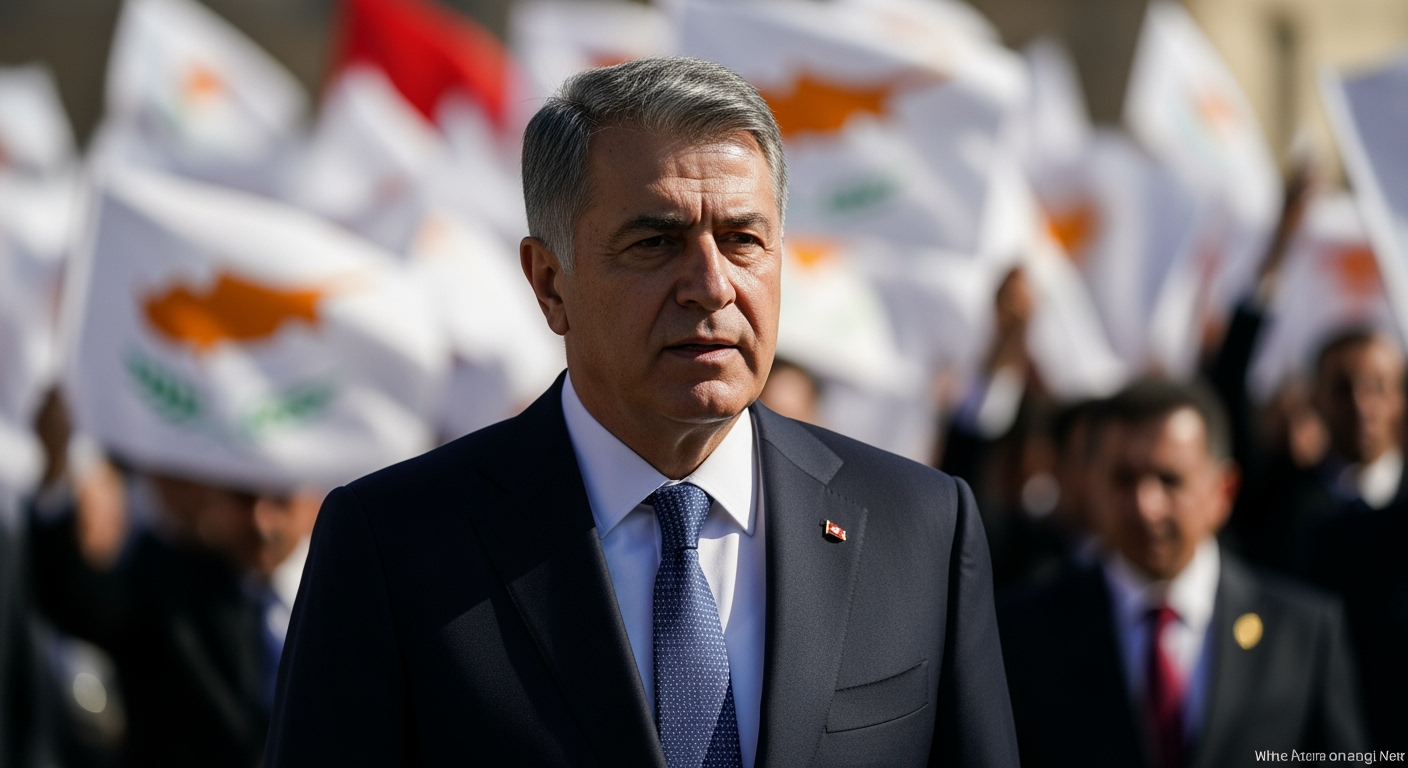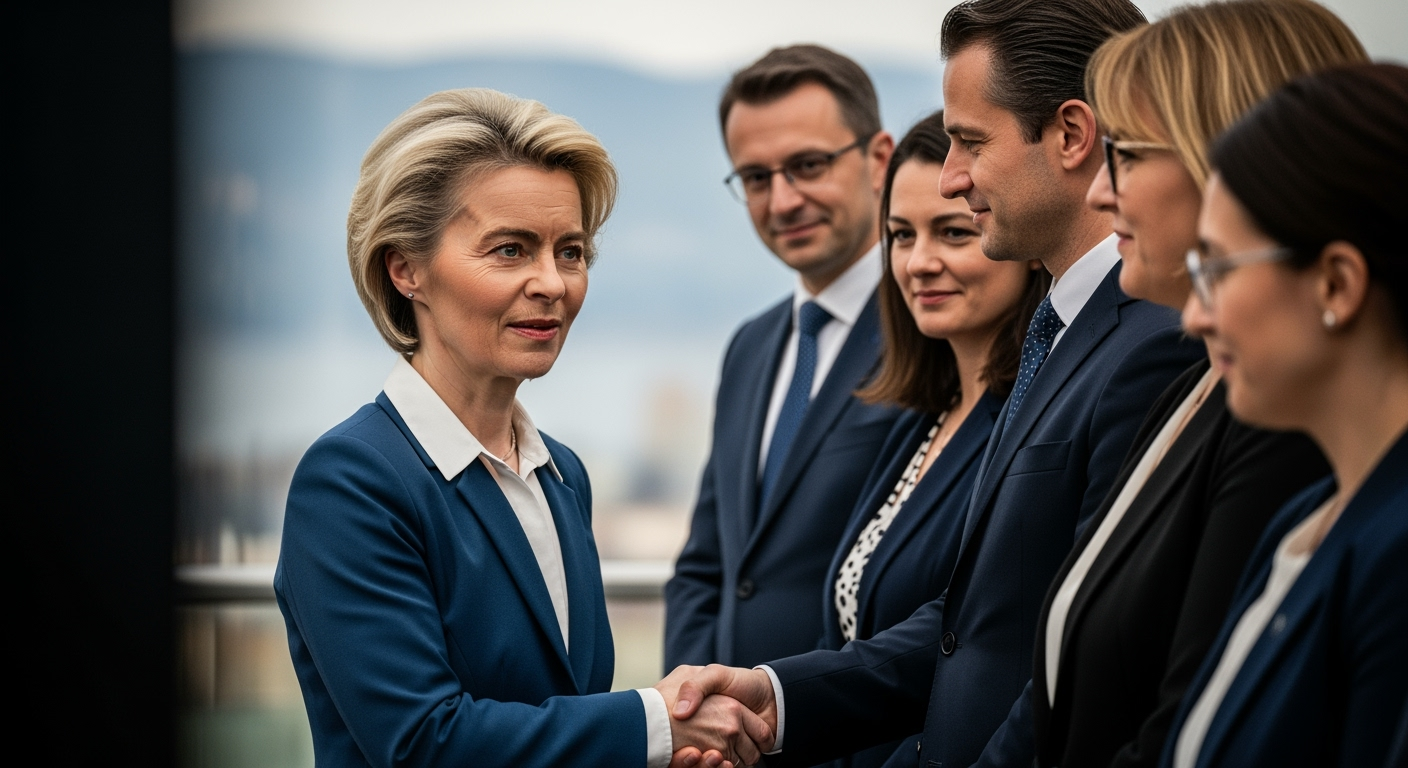Related Articles

Turkish Cypriots Elect Erhürman in Landslide, Sending Complex Signals to Ankara

China Navigates Critical Economic Crossroads with Ambitious New Five-Year Plan





The European Union is intensifying its strategic engagement with the Western Balkans, driven by an ambitious plan to foster economic growth and accelerate fundamental reforms, all against a backdrop of evolving geopolitical realities, particularly Russia's ongoing influence in the region. European Commission President Ursula von der Leyen has spearheaded this renewed focus, emphasizing that the path to EU membership for Albania, Bosnia and Herzegovina, Kosovo, Montenegro, North Macedonia, and Serbia hinges on tangible progress across key areas. This concerted effort underscores the EU's commitment to integrating its neighbors and fortifying regional stability in a fractured world.
At the heart of the EU's invigorated approach is the Growth Plan for the Western Balkans, a comprehensive strategy adopted by the European Commission in November 2023. This plan aims to achieve significant socio-economic convergence between the Western Balkans and the EU, offering tangible benefits even before full integration. A central pillar of this initiative is a new €6 billion Reform and Growth Facility, allocated for the period 2024-2027, comprising €2 billion in grants and €4 billion in concessional loans. Crucially, the disbursement of these funds is directly conditioned on the implementation of specific socio-economic and fundamental reforms by the Western Balkan partners.
The Growth Plan seeks to integrate the region into the EU's single market, advance regional economic cooperation, and deepen EU-related reforms. Projections indicate that successful implementation has the potential to double the size of the Western Balkan economies within the next decade, a significant leap given the current average per capita GDP in the region stands at roughly 20-35% of the EU average. Enhanced regional cooperation, particularly through a common regional market, could add an estimated 10% to the regional Gross Domestic Product over time. The plan envisions providing access to key areas of the EU Single Market, including the free movement of goods, services, and workers, integration into the Single Euro Payments Area, facilitation of road transport, and the decarbonization of energy markets. During recent visits, President von der Leyen has highlighted numerous investments under the Growth Plan, particularly in clean energy projects like solar and wind farms in North Macedonia and Serbia, and critical transport infrastructure such as the Trans-Balkan Electricity Corridor and key railway corridors connecting the region.
While financial incentives and market access form a crucial component, the EU’s strategy unequivocally links economic support with a rigorous commitment to fundamental reforms. Von der Leyen has consistently stressed that deeper integration demands measurable progress in areas such as the rule of law, electoral frameworks, media freedom, and the fight against corruption. Judicial reform, in particular, is considered paramount to strengthening the rule of law and is often interchangeably used with it due to its practical importance in the accession process. Each Western Balkan partner is required to develop and implement a tailored Reform Agenda with specific milestones, the completion of which will trigger the release of funds.
The reform agenda presents varying challenges and expectations across the region. Serbia, for instance, faces particular pressure to "get concrete" about its EU aspirations by demonstrating substantial progress on the rule of law, the electoral framework, and media freedom. In North Macedonia, constitutional changes remain a prerequisite for further advancement on its EU path. Kosovo has been urged to continue building strong institutions, with calls for the EU to grant it candidate status expediently. Bosnia and Herzegovina, still navigating institutional complexities, has yet to submit its comprehensive Reform Agenda, though the EU has offered assistance in its finalization. These conditions underscore the EU’s demand for genuine institutional transformation rather than merely superficial alignment.
The renewed urgency of EU engagement with the Western Balkans is undeniably shaped by the broader geopolitical landscape, particularly the implications of Russia's full-scale invasion of Ukraine in 2022. The EU views the Western Balkans as a critical region for stability and security, and there is a pronounced concern that Moscow could seek to destabilize the area, which is still recovering from the conflicts of the 1990s. The Growth Plan is explicitly designed to foster political stability, security, and to counter the influence of external actors, including Russia and China, both significant players in the region.
Energy security has emerged as a particularly sensitive point of contention and a key area for EU intervention. While the Western Balkan states primarily rely on fossil fuels, especially coal, and have historically faced periodic blackouts, several countries, including Serbia, Bosnia and Herzegovina, and North Macedonia, exhibit some dependence on Russian natural gas. To mitigate this vulnerability, the EU initiated a €1 billion energy support package in 2022, aimed at easing the immediate impact of the energy crisis and accelerating the green transition. Furthermore, the EU is actively working to integrate the Western Balkans into its energy market, investing in projects like the Trans-Balkan Power Corridor and gas interconnectors. Serbia has been invited to join the EU's joint gas-purchasing platform, a move designed to reduce reliance on Russian supplies.
However, Serbia's reluctance to align with EU sanctions against Russia remains a significant point of friction. President von der Leyen has directly urged Serbia to demonstrate "greater alignment" with the EU's common foreign policy, including imposing sanctions on Russia, emphasizing this as a measure of credibility for candidate countries. Belgrade, maintaining historical ties and significant energy dependence on Moscow, has so far avoided this step, viewing it as a primary obstacle to its EU accession. This divergence highlights the complex balancing act faced by regional leaders as they navigate their European aspirations amidst entrenched historical and economic relationships.
The European Union's intensified focus on the Western Balkans, articulated through the comprehensive Growth Plan and rigorous reform demands, signifies a critical juncture for both the region and the bloc. President von der Leyen's continuous engagement underscores the EU’s unwavering commitment to the enlargement process, viewing it as essential for consolidating stability and prosperity on the continent. The Growth Plan offers an unprecedented opportunity for economic uplift and deeper integration, promising tangible benefits like access to the EU Single Market and substantial financial support.
However, the realization of this potential rests heavily on the Western Balkan nations' sustained commitment to fundamental reforms, particularly in governance, rule of law, and democratic institutions. Simultaneously, aligning foreign policy positions, especially concerning Russia, is an increasingly pertinent requirement for full EU integration. The journey ahead demands a mutual commitment: from the EU, consistent support and a credible enlargement perspective; and from the Western Balkans, an unwavering dedication to the principles and standards that underpin the European Union. The success of this ambitious endeavor will ultimately redefine the future of a strategically vital region.